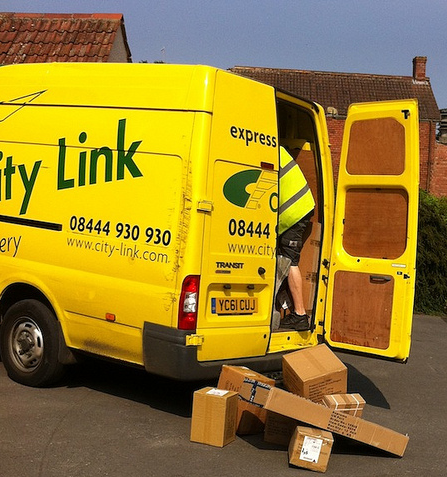The retail and delivery industries are still reeling after City Link entered administration on 24th December 2014. The firm had suffered substantial and sustained losses, leaving 2,727 staff without jobs and even more consumers without their parcels. While the company had hoped that the Christmas trading period would see them through, mis-judged operational decisions and consistent squeezing on price meant it was only a matter of time until the axe fell.
There are numerous reasons why City Link didn’t make it. One of the biggest factors however was a failure to clearly define its proposition. The growth in ecommerce continues to outstrip carrier capacity so, although there are still huge opportunities out there, the competition has driven costs down, for the retailer and consumers. Carrier companies have had to absorb additional costs at the same time as having to invest in improving their delivery options – such as same day delivery, text reminders, 30-minute time slots – in order to remain competitive.
City Link was slower to keep pace with these demands and didn’t invest as much in new processes and technology as their competitors. This meant that, without any other USP to set them apart, they were left to compete on price alone. And when retailers began choosing a value based proposition rather than selecting couriers purely on price, City Link lost the volume that they needed to make the existing model work.
While City Link’s demise was dreadful for its employees it also had a catastrophic effect on retailers up and down the UK who were relying on them to deliver on time. The Hull Daily Mail featured a story on Carpets Direct who relied on City Link to deliver over 100 parcels per day for them. The company’s managing director is still busy apologising to customers and trying to locate and rectify orders due for delivery over the Christmas period. “When City Link went under, our business stopped completely”, said its managing director Mark Pearson.
The knock-on effect is being felt amongst large and smaller retailers alike. For today’s savvy consumer, delivery is a huge part of the ecommerce experience. While we accept the fact that the final part of a product’s journey is outsourced to a third party, how satisfied we are with the delivery has a huge impact on our perception of a brand. Rightly or wrongly, the entire reputation of a retailer can rest on the quality of its delivery service.
So how do you pick the right delivery partner and make sure your customers come back to you? Here are our top tips for getting your delivery strategy right:
- Don’t just go for the easy option – despite all the talk of market saturation above, having a choice is still a very good thing. Don’t assume that you have to take everything to the Post Office – there are other experts out there that can rival or better any high street service.
- A one size fits all approach won’t work – there is no single partner that will tick all the boxes for every type of delivery. Think about each item you’re sending and what the priorities are – speed, specialist handling etc. Then you can use multiple partners depending on the type of product you’re sending. Some will be better at European deliveries for example, and others will be much more cost effective when sending larger items.
- Put the customer’s requirements first – do you need to offer next day delivery or is standard 3-5 days acceptable? Are your customers willing to pay a premium for a quicker delivery service? If your strategy enables you to select a variety of delivery partners then you’re able to offer your customers a much better choice.
- Don’t pick your partners on cost alone – while it’s crucial to shop around and find the best deal, cost shouldn’t be your only criteria when choosing a delivery partner. Remember, if the service isn’t up to scratch you may be left with some very unhappy customers and will potentially lose future custom.
- Finally, do your homework – or even better, get someone else to do it for you! Look at comparison sites to find the best partner for the job, read the reviews to see how they fare and talk to other retailers like yourself to get their advice. By using a comparison site you can rest assured that the quote you are receiving is the very best for your requirements but they’re also there to help you and find alternatives should anything go wrong.






